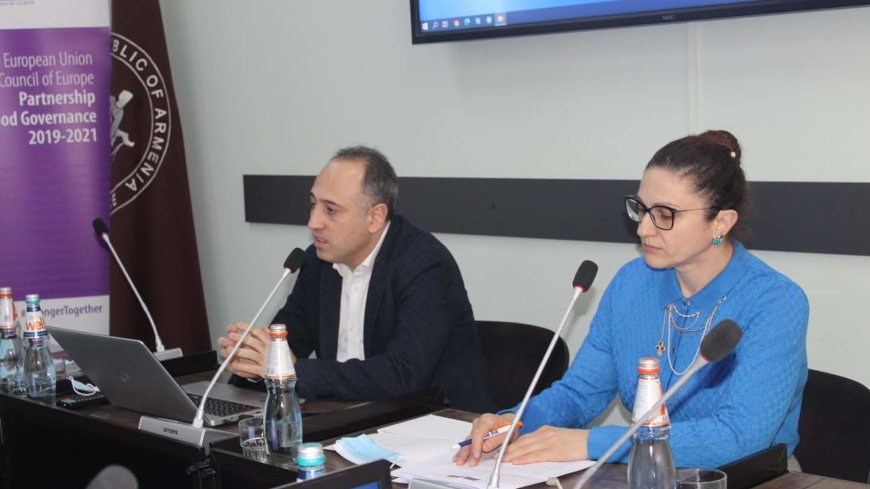Through two seminars on “Selected issues of new Criminal (CC) and Criminal Procedure Codes (CPC) of Armenia” organised for two groups of 48 prosecutors of Armenia on 25-26 January and on 22-23 February in the Justice Academy in Yerevan, our joint European Union-Council of Europe project enhanced the knowledge and skills of participants on the new criminal and procedural legislation of Armenia.
During the first half of the seminars, participants learnt about the principles of criminal law and its retrospectivity that would significantly help them to correctly classify the crimes either under the current or new CC when the later enters into force in July 2022. The prosecutors benefited from the detailed discussion on the circumstances excluding responsibility and grounds for release from criminal liability and punishment. The second day of each of the seminars was devoted to the selected issues of the new CPC. Particularly, in the context of compulsory measures, the prosecutors acquired skills on the new alternative measures to detention such as house arrest and administrative supervision as well as discussed ground for imposing arrest and detention as last measure of restrain. Different types of court hearings such as preliminary, principal and supplementary were discussed as well. Concrete examples and short case-studies were prepared for each topic of two seminars that greatly facilitated the communication among the participants and the trainer.
The seminars were organised in cooperation with the Justice Academy of Armenia in the framework of the project “Supporting the criminal justice reform and harmonising the application of the European standards in Armenia," funded by the European Union and the Council of Europe and implemented by the Council of Europe in their Partnership for Good Governance II (2019-2022).





